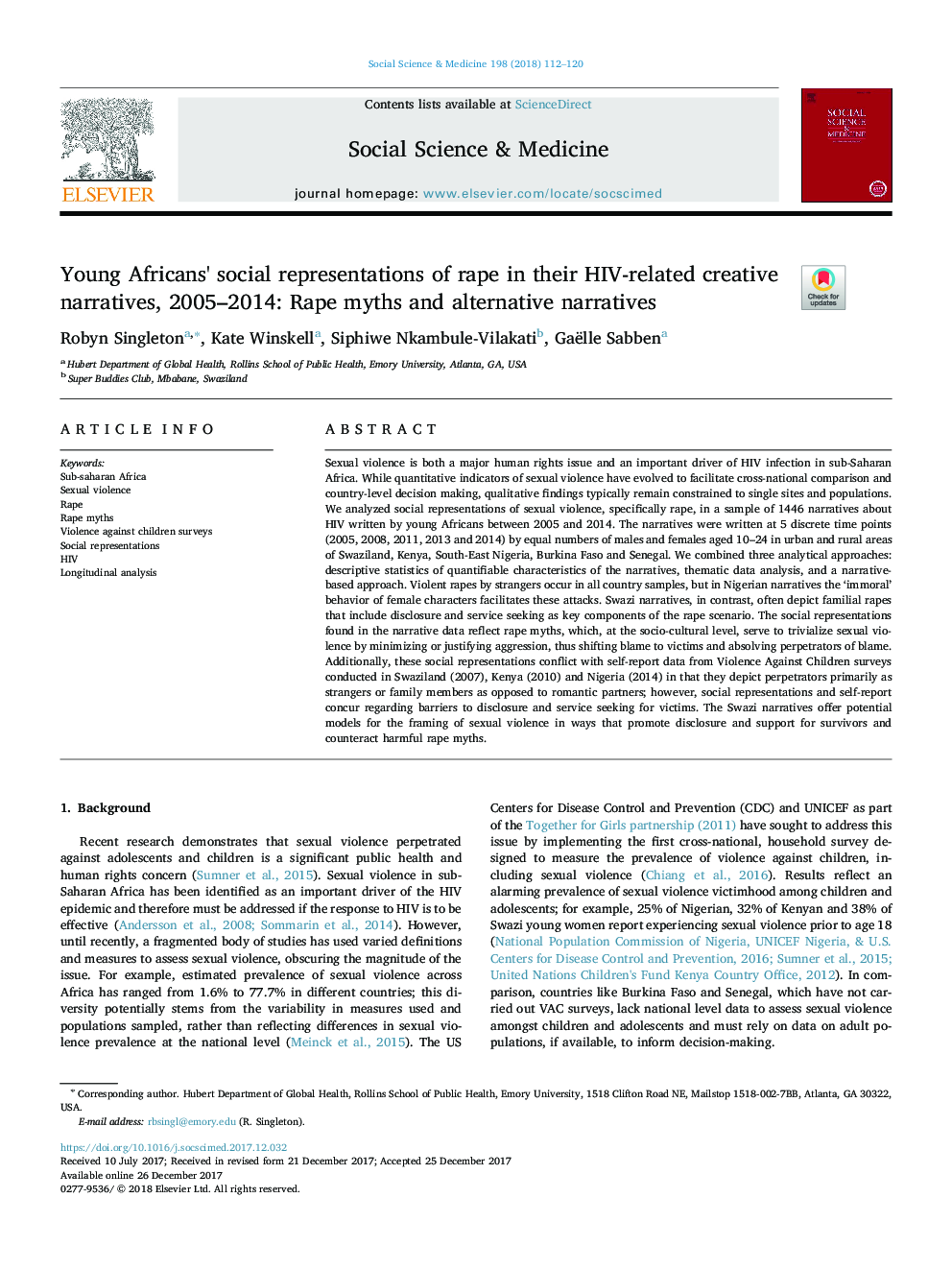| کد مقاله | کد نشریه | سال انتشار | مقاله انگلیسی | نسخه تمام متن |
|---|---|---|---|---|
| 7328634 | 1475971 | 2018 | 9 صفحه PDF | دانلود رایگان |
عنوان انگلیسی مقاله ISI
Young Africans' social representations of rape in their HIV-related creative narratives, 2005-2014: Rape myths and alternative narratives
دانلود مقاله + سفارش ترجمه
دانلود مقاله ISI انگلیسی
رایگان برای ایرانیان
کلمات کلیدی
موضوعات مرتبط
علوم پزشکی و سلامت
پزشکی و دندانپزشکی
سیاست های بهداشت و سلامت عمومی
پیش نمایش صفحه اول مقاله

چکیده انگلیسی
Sexual violence is both a major human rights issue and an important driver of HIV infection in sub-Saharan Africa. While quantitative indicators of sexual violence have evolved to facilitate cross-national comparison and country-level decision making, qualitative findings typically remain constrained to single sites and populations. We analyzed social representations of sexual violence, specifically rape, in a sample of 1446 narratives about HIV written by young Africans between 2005 and 2014. The narratives were written at 5 discrete time points (2005, 2008, 2011, 2013 and 2014) by equal numbers of males and females aged 10-24 in urban and rural areas of Swaziland, Kenya, South-East Nigeria, Burkina Faso and Senegal. We combined three analytical approaches: descriptive statistics of quantifiable characteristics of the narratives, thematic data analysis, and a narrative-based approach. Violent rapes by strangers occur in all country samples, but in Nigerian narratives the 'immoral' behavior of female characters facilitates these attacks. Swazi narratives, in contrast, often depict familial rapes that include disclosure and service seeking as key components of the rape scenario. The social representations found in the narrative data reflect rape myths, which, at the socio-cultural level, serve to trivialize sexual violence by minimizing or justifying aggression, thus shifting blame to victims and absolving perpetrators of blame. Additionally, these social representations conflict with self-report data from Violence Against Children surveys conducted in Swaziland (2007), Kenya (2010) and Nigeria (2014) in that they depict perpetrators primarily as strangers or family members as opposed to romantic partners; however, social representations and self-report concur regarding barriers to disclosure and service seeking for victims. The Swazi narratives offer potential models for the framing of sexual violence in ways that promote disclosure and support for survivors and counteract harmful rape myths.
ناشر
Database: Elsevier - ScienceDirect (ساینس دایرکت)
Journal: Social Science & Medicine - Volume 198, February 2018, Pages 112-120
Journal: Social Science & Medicine - Volume 198, February 2018, Pages 112-120
نویسندگان
Robyn Singleton, Kate Winskell, Siphiwe Nkambule-Vilakati, Gaëlle Sabben,